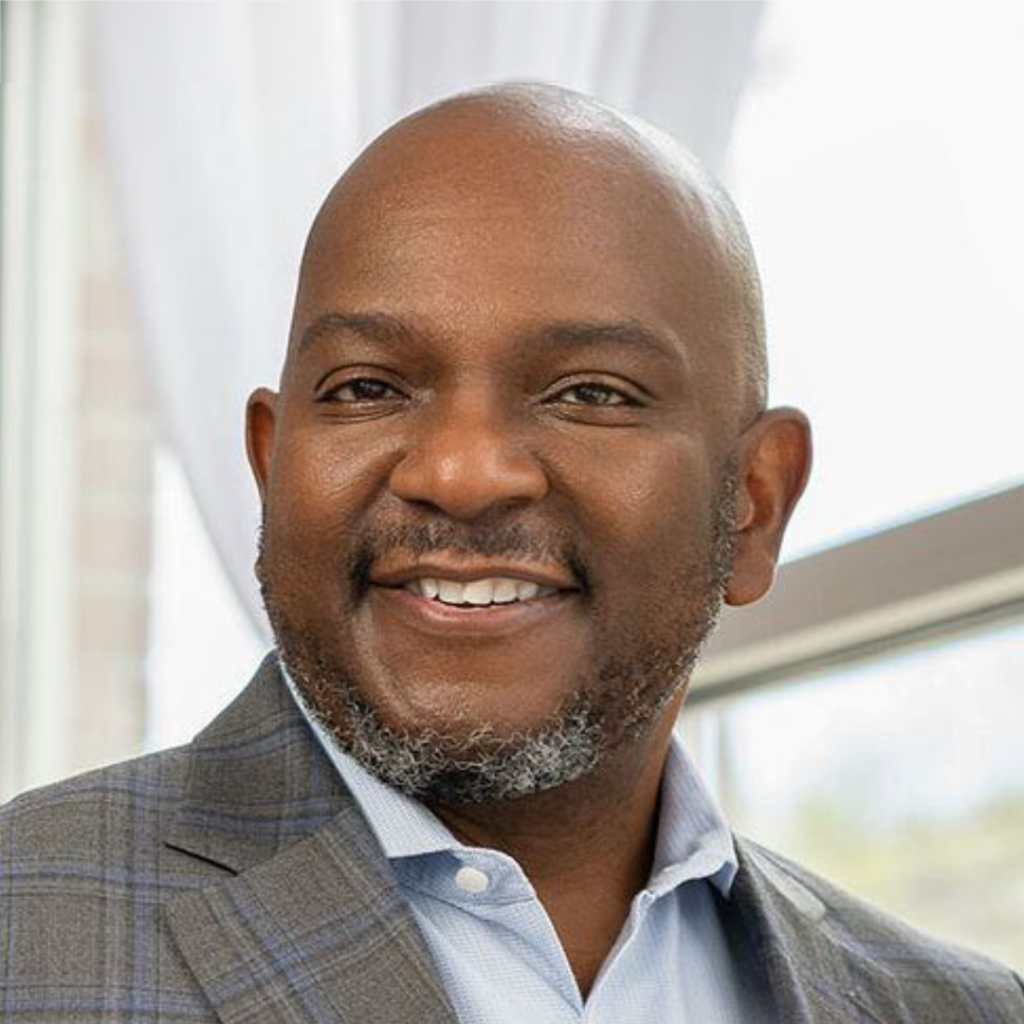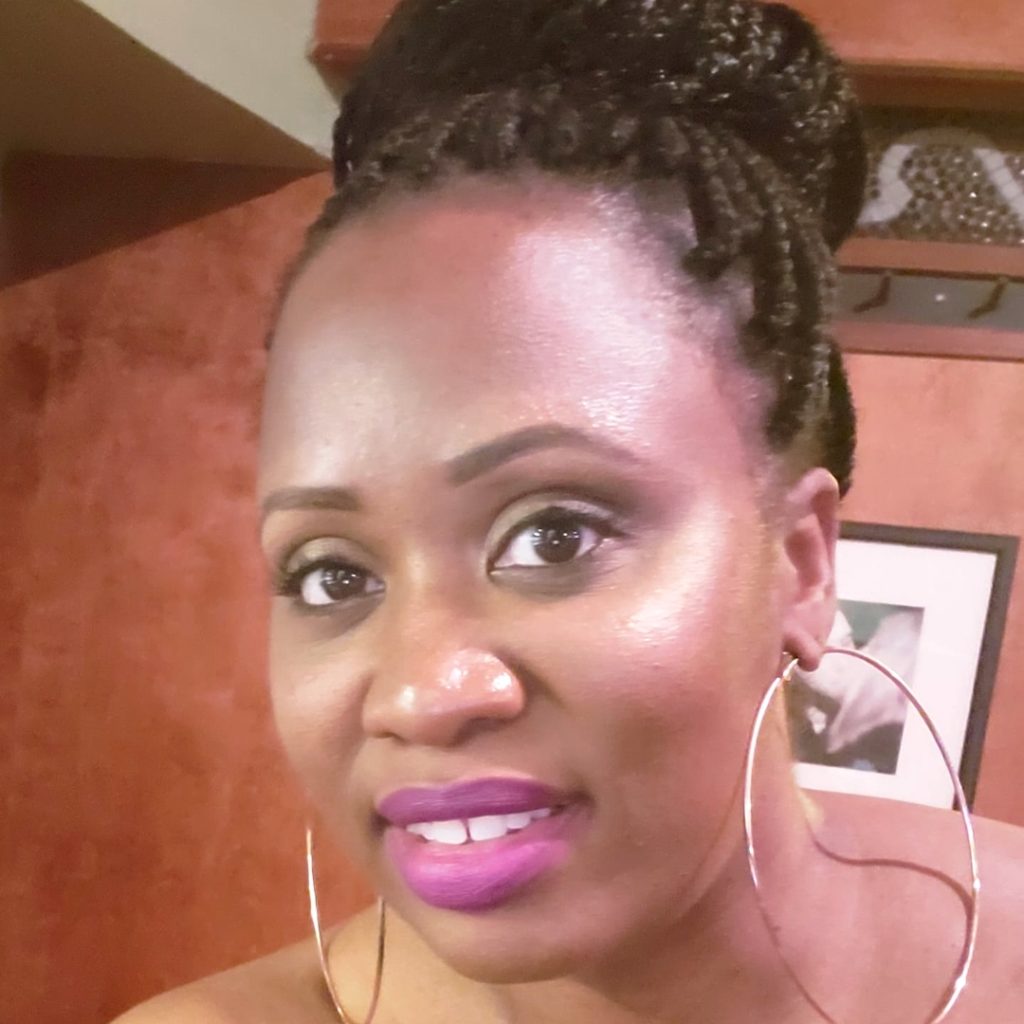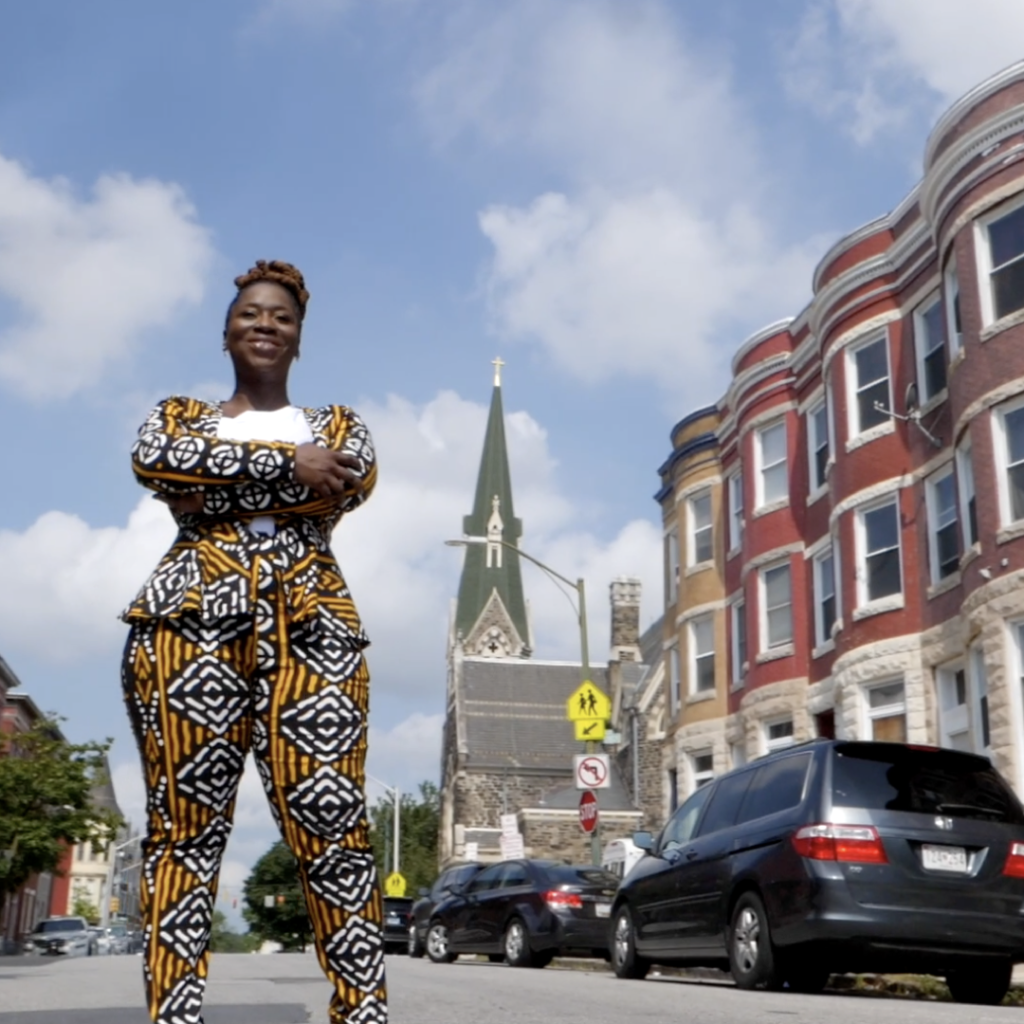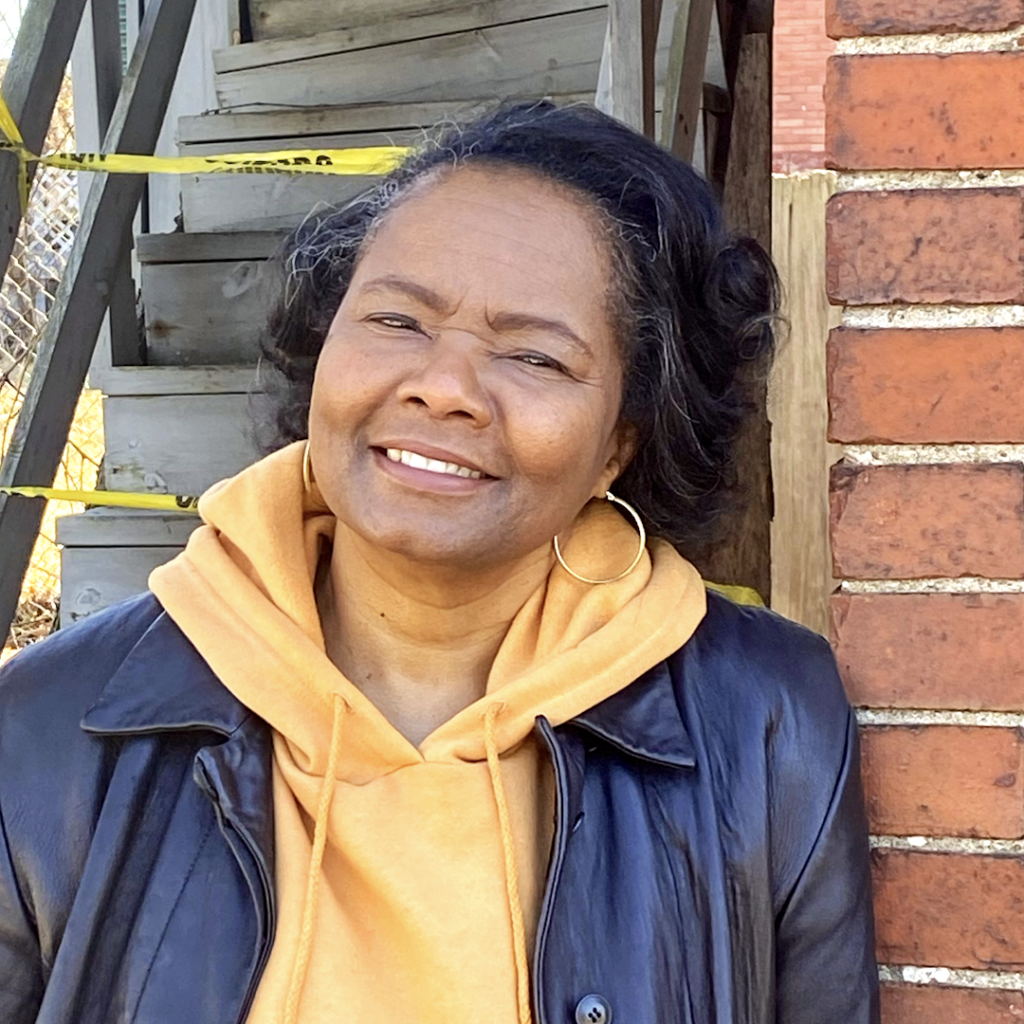
Lyneir Richardson is working to empower entrepreneurs and strengthen economic conditions in urban and underserved areas across the United States. He wears multiple hats, investing in commercial real estate, educating and advising entrepreneurs and MBA students, consulting corporations, foundations and government agencies, and structuring deals to get capital to Black entrepreneurs and real estate developers.
Lyneir is CEO of The Chicago TREND Corporation, a social enterprise funded by prestigious impact investors to catalyze urban retail development. TREND has deployed over $25M of impact capital, owns four shopping centers, and assisted numerous Black retail operators and commercial real estate developers in cities across the country. Lyneir recently raised $330,000 in equity from 130 Black, small and/or impact investors for a shopping center in Baltimore, MD.
This project is at the core of his strategy – to build Black wealth through community-owned shopping centers. He’s planning to buy 16 community shopping centers and invite 1,000 small investors to co-own them with his company, Chicago TREND. To accomplish this, Lyneir and his team have developed a rigorous set of criteria for finding and buying shopping centers in majority Black Demographics that are on the cusp of change, and offer added value over a time. His plan is to empower Black entrepreneurs and community residents to have a meaningful ownership stake in the revitalization and continued vibrancy of commercial corridors and Black shopping districts.
Lyneir wants every neighbor to be able to say “We Own This”
Lyneir is an Assistant Professor of Professional Practice in the Department of Management and Global Business at Rutgers Business School in Newark, NJ and serves as the Executive Director of the Center for Urban Entrepreneurship and Economic Development. He leads capacity-building programs that have assisted 600+ racially diverse entrepreneurs and launched the Black and Latino Investment Fund of New Jersey.
Lyneir served as the Chief Executive Officer of the primary economic development corporation in Newark, NJ, for Mayor Cory Booker and Mayor Ras Baraka. As Vice President of Urban Development at General Growth Properties, Inc., he led the national initiative to improve shopping centers in ethnic neighborhoods in U.S. cities. Early in his career, Lyneir was named a U.S. Small Business Administration “Young Entrepreneur of the Year”. Lyneir started his career as a corporate attorney at the First National Bank of Chicago. Lyneir graduated from Bradley University and the University of Chicago Law School. He is a member of the Urban Land Institute and the International Council of Shopping Centers. He has served on the Board of Directors of the International Economic Development Council, New Growth Innovation Network, Equal Measure, Southland Development Authority, Investor Advocates for Social Justice, Cook County Land Bank, and many other nonprofit organizations. He has served as Vice Chairman of the Illinois Housing Development Authority Trust Fund Board and as a Commissioner on the City of Chicago Planning Commission. He is a Nonresident Senior Fellow at Brookings Metro, the Brookings Institution. He is a proud (but slow) finisher of the Chicago Marathon.
Read the podcast transcript here
Eve Picker: [00:00:09] Hi there. Thanks for joining me on Rethink Real Estate for Good. I’m Eve Picker and I’m on a mission to make real estate work for everyone. I love real estate. Real estate makes places good or bad, rich or poor, beautiful or not. In this show, I’m interviewing the disruptors, those creative thinkers and doers that are shrugging off the status quo in order to build better for everyone. And speaking of building better, I’m very excited to share that my company, Small Change, is now raising capital through a community round that is open to the public. Small Change is a leading equity crowdfunding platform for impact investment in real estate. For as little as $250, anyone 18 and over can invest in Small Change, helping to fuel our growth as we disrupt the old boys club of capital that routinely ignores so many qualified people and projects. Please visit Wefunder.com/smallchange to review the full details of our raise and to make an investment if you can. And remember, investing is risky. Don’t invest more than you can afford to lose.
Eve: [00:01:59] Lyneir Richardson is building Black wealth through community owned shopping centers. He’s planning to buy 16 community shopping centers and invite 1000 small investors to co-own them with his company, Chicago Trend. To accomplish this, Lyneir and his team have developed a rigorous set of criteria for finding and buying shopping centers in majority Black demographics that are on the cusp of change and that offer added value over time. His plan is to empower Black entrepreneurs and community residents to have a meaningful ownership stake in the revitalization and continued vibrancy of commercial corridors and Black shopping districts. Lyneir wants every neighbor to be able to say, we own this. If you’d like to join me in my quest to rethink real estate, there are two simple things you can do. Share this podcast and go to rethinkrealestateforgood.co, where you can subscribe to be the first to hear about my podcasts, blog posts and other goodies.
Eve: [00:03:23] Hi, Lyneir. Thanks so much for joining me today.
Lyneir Richardson: [00:03:26] Eve, it’s a pleasure to be with you.
Eve: [00:03:28] So, I’m looking forward to this conversation. But let’s start by talking about Chicago Trend. What does Chicago Trend do?
Lyneir: [00:03:37] Chicago Trend was formed in 2016 to strengthen commercial corridors and retail in neighborhoods that are on the cusp of change. Most of our work has been in majority Black neighborhoods. As you know, the first impression of a neighborhood is the commercial corridor. So, if you drive into a neighborhood and you see a shopping center that’s underdeveloped or a boarded up storefront or a liquor store and check cashing, even if the homes are in good shape, your first impression of that neighborhood is that something could be better here. And we see disinvestment all around, and our goal is to come up with strategies to arrange capital, to make the case for retailers to strengthen commercial neighborhoods, which ultimately will strengthen and strengthen the commercial corridor, which ultimately will strengthen the neighborhood.
Eve: [00:04:35] So, to turn the first impression into an opportunity instead of a ‘let’s not go here’. Right?
Lyneir: [00:04:40] Instead of the retail being a liability, it should be an asset for the community.
Eve: [00:04:45] Yes. How does Trend work? How many people work for you?
Lyneir: [00:04:48] We’re still a small team. We have six people total. We have a whole lot of advisers and consultants and part time experts, subject matter experts, best legal team architects and contractors. What’s been fun is, you know, we own four shopping centers now. And there’s one part of the work that’s about the shopping center specifically, but there’s another part of the work that we’ve been able to engage. Black property managers, Black leasing agents, people of color as architects and engineers. Even the landscaper on one of our shopping centers is Black. And the way I talk about that is that being intentionally inclusive doesn’t mean exclusive. We have other people as well, right, that work on our properties that are not Black. But the thought of being able and being in a position to give opportunities to retailers and entrepreneurs who connect with these communities, who have not only a professional expertise but also a deep sort of history, their family still, they grew up there. Ideally, it means that we’ll get better services and more intense quality of work.
Eve: [00:06:08] It’s pretty powerful. So, now you have a plan to build Black wealth through increased ownership opportunities of real estate assets. So, tell me about the plan and your strategy and how it emerged.
Lyneir: [00:06:20] Yes. So, when we acquired our first shopping center in Chicago, it was initially the strategy of if we owned it and we could control it and we can hire experts. And then right after George Floyd was murdered, I remember seeing a guy holding a sign up. There was civil unrest in the neighborhoods we were working in. And the sign said, ‘Please don’t destroy, my business is Black-owned’. And what I remember thinking is, wow, who owns the shopping center? And that became the inspiration for our work. The way I talk about it is, wealth is created by owning assets, assets that generate revenue and appreciate over time. And that if we really are going to close racial wealth gap, if we really are going to strengthen neighborhoods, we got to create a way to do more inclusive ownership of real estate assets and other assets that can close the racial wealth gap. So, one of my proudest moments in the history of this business is we raised $330,000 from 130 Black local small investors on Small Change. We did work together, and it was, it was the plan.
Lyneir: [00:07:48] And initially Eve, the thing that also was fun about that project and that time is there was an article in the Wall Street Journal. Penny Pritzker, the former commerce secretary, was quoted in the Wall Street Journal. She sits on the board of the Harvard Land Company, and the quote was, Harvard had issued some RFP, and I believe Tishman Speyer won the RFP. As a part of the requirements of the RFP, they require that 5% of the equity in the project, big high profile, hundreds of million-dollar project, 5% of the equity had to be available to Black and Brown investors. And the quote in The Wall Street Journal was, Penny Pritzker says one of the reasons there’s a racial wealth gap in America is people of color don’t get invited into good real estate deals. And The Wall Street Journal was highlighting that the investors were Jay-Z and LeBron James and Wall Street executives. And I remember thinking, I called her, I like, sent a note immediately and said, hey, we’re doing the same thing. But our investors are millennials and grandmothers and charter school parents and the teachers, they’re investing 1000 or $2,000. So, it’s one thing to say, well, I want to have more people of color and I’m not knocking, we’d welcome Jay-Z or LeBron.
Eve: [00:09:12] Wouldn’t that be great? Yeah.
Lyneir: [00:09:14] But what’s equally important is that we have individuals that we can touch and feel. And I’m branding this. I haven’t created merchandise yet, but I have this idea to brand what I’m calling #WOT, we own this. And the ‘we’ doesn’t even mean the 130 investors that invest with us. The ‘we’ is, that’s my uncle, that’s my aunt, Eve.
Eve: [00:09:41] Yeah.
Lyneir: [00:09:41] That’s my, I went to school. That’s my fraternity brother. That pride of ownership. I saw it firsthand. We were doing a Little League parade with my brother in Harlem and my nephew had $1,000 in a local bank. And as we walk down the streets in Harlem, he said, I own that bank because he had $1,000 deposit.
Eve: [00:10:07] Yeah, yeah.
Lyneir: [00:10:07] He owned that bank. So, imagine if he had said, I own that shopping center.
Eve: [00:10:11] Yeah, well, this is why Small Change exists, because I feel very much the same way as you do. I mean, it’s great when people with a lot of money invest in disinvested neighborhoods. That’s a great thing. But it’s even better if the people in the neighborhood, you know, get get a chance to go along for the ride. And especially as home ownership is quickly becoming more and more out of the reach of many people, there has to be a way I mean, real estate assets are solid. It’s sort of a tried and true way to build wealth. Everyone knows that owning a home is the number one way to do it. So, there has to be a way to let people in. I think it’s really important. I love what you’re doing.
Lyneir: [00:10:55] Thank you.
Eve: [00:10:56] And then there are lots of statistics, right? The percentage of Blacks who own commercial real estate is much lower than the percentage of Whites, and the value of the real estate is also much lower.
Lyneir: [00:11:08] Yeah. You know, I have the good fortune of late last year becoming a nonresident Senior Fellow of the Brookings Institution.
Eve: [00:11:18] Congratulations.
Lyneir: [00:11:19] Thank you. And working with very esteemed researchers Andre Perry and Tracy Hadden Loh.
Eve: [00:11:31] They’re amazing.
Lyneir: [00:11:32] You know, they’ve done some incredible work. Andre’s work around the devaluation of assets, his research and Tracy’s research that only 3% of commercial property is owned by Black people, as opposed to six times that for people that are not Black just shows that there’s opportunity there. And so, we’re digging into that work. I’m looking forward to doing some more research and exploration and coming up with some new knowledge and tools that will help close the gap.
Eve: [00:12:02] And then I’m going to look forward to interviewing you about it. So, I’ve interviewed both Tracy and Andre. They’re both amazing. So, tell me the big plan. What’s the big plan?
Lyneir: [00:12:12] We have a project now. So, we own four assets. We raised a fund to allow us to buy 12 more shopping centers, and the goal is in each instance to make as little as 5% and as much as 49% of the equity available to entrepreneurs to and to local entrepreneurs, community residents, socially minded small investors. So whether it’s Black investors just in the neighborhood or as people who believe that there are thousand or $5000 investment, even if they live across the country, across the world, that they want a return but they also want to see that their dollars mean something in the neighborhood. So, it’s not just for residents. right. But I do a lot of work, Zoom calls, community meetings, setting up little coffees in the library, to talk to community. But I always tell people we need everyone. I last raised our Small Change raise, 50% of the investors. There about, 53% were Black people. But that means 47% were not, right, that we had 33% of our investors were right from the state of Maryland or in the zip code where the shopping center was. But that means the other two thirds were not. So, we need impact investors who want to see this strategy of making neighborhoods better, getting amenities and services and investment, reducing crime, you know, and attractive places. You know, that’s what our small offerings is aiming to do. So, we want to own 16 shopping centers. We think that’s going to be about $100 million of investment. We want to have 1000 small impact investors in our projects, and we want to do that in the next three years or so.
Lyneir: [00:14:06] Wow. So, you own four. And where are they all located?
Lyneir: [00:14:10] We own three in Chicago. We own the one in Baltimore. We’re about to buy our second in Baltimore, our fourth asset in Chicago. And we’re just getting, we have a property under contract in Columbus, Ohio. So, same way, in a vibrant retail corridor. We’ve been cultivating really good community leaders, local entrepreneurs, residents who want to see better retail and want to have an ownership interest in better retail. So our strategy of asking people to co-own with us right, is something that again I, you know, I get a lot of energy from.
Eve: [00:14:52] So, full disclosure you have a project that’s listing on Small Change right now and this is part of your strategy. It’s a big project. Where is that one? Tell us about it.
Lyneir: [00:15:04] So, this is in West Baltimore, three miles away from where we bought our first project. So, anyone that expressed an interest in our first project, we hope they will take a look at this one. This is a $41 Million acquisition and redevelopment, so it’s a big deal. However, this shopping center, Eve, when it was built in the 1940s, it was built with such great ambition. It had a movie theater and a pet shop and a department store across the street, a lunch counter that people loved that had holiday lights. Well, over the years it’s experienced disinvestment. Now it’s had, its recent history is two fires. There was a tragic shooting in the parking lot. Even though there is strong home ownership around it, a whole lot of traffic passes the shopping center. It needs redevelopment.
Lyneir: [00:15:59] So, our whole strategy is that we call it reimagine, revitalize, redevelop, reposition the shopping center, attracting a grocery store and sit-down restaurants and other services and amenities. Most of our projects, Eve, I call them service-oriented shopping centers. So, this is not Best Buy in West Elm and the Cheesecake Factory. This is the drugstore, the carry out pizza, Health Services, grocery, a place to have a sit down. For us to meet right now in West Baltimore for coffee, we’d actually have to leave the city, right? There’s no place. A TGI Fridays, you know, an Applebee’s, and you pick whatever. Nothing glamorous, it’s just a place that would serve and be a place where you can go and have a birthday party.
Eve: [00:16:53] And I love the way that you talk about these. These are not businesses that Amazon will compete with. They’re really service businesses in the neighborhood, which is just a really interesting way to think about it.
Lyneir: [00:17:06] Amazon doesn’t do fingernails yet, although I did see a machine somewhere where it was like a robot doing manicures. But so, it’s, it really is services.
Eve: [00:17:19] Interesting. So, what are some of the challenges you’re being confronted with in terms of financing or even perception or the tenant pool?
Lyneir: [00:17:28] Yep. So, we’ve had, you know, once a shopping center loses its franchise as a property, right, the retailers say, oh, you know, I’ve been there. I’ve seen a decline. Right? So, the first thing is painting a very big new vision and convincing people that you have the resources to bring that new vision to fruition. So, even as we got this property on the contract, the first thing we did was we went to the municipality, and we got an 8,000,000 million. This is not a promise. It’s now past the the City Council approval process, an $8 million commitment for capital improvements. We’re having those same level of discussions with the State of Maryland and hope to have those approvals lined up. So, imagine having $15-16 million of public money that’s focused on making a first-class renovation here, A. B, one of the challenges to the redevelopment here was, there was a, back in the Forties when the shopping center was developed, there was the set of quote unquote restrictive covenants that there were 120 parcel owners around the shopping center and it really precluded, you can’t do new signage. You can imagine back in the forties, you can’t do out parcels, you know, as we think about where a restaurant might sit or where a bank branch might sit. And so, we’ve had to go through this process of hosting community meetings and introducing ourselves and our plan and, you know, almost on a one-by-one basis, getting 59 people to parse the owners.
Eve: [00:19:13] It’s like a political campaign.
Lyneir: [00:19:14] Right. And again, but part of the reason that the shopping center is in this condition is nobody has had the energy and the strategy and the urgency but patience to work with the local parcel owners to get this approval process done. So, if you would have seen me out there. One hot August day, Eve, I was sitting in front of the shopping center with like a car table, and I wish I would have brought a Pitcher of lemonade. It would look like Lyneir’s lemonade stand know. But I was saying, you know, I have a contract to purchase the shopping center. Here’s our plan. And one by one, getting the support that we need to move forward.
Eve: [00:19:57] Wow, and you have that support now?
Lyneir: [00:19:58] We have. We’re almost done with it. We still have some process.
Eve: [00:20:02] Congratulations.
Lyneir: [00:20:03] Part of my thought of, we’ve lined up our first mortgage financing. We have our equity. We made this offering on Small Change to create opportunity for local investors. And it’s funny because it’s not as if we absolutely need the money. We really believe that if local people and small investors have a sense of ownership, they’ll patronize, protect, respect, support the project in a way like owners. And that’s what we really. So, I’d like to have, we need a few, I’d like to have many. Right. Because you want other people to care and protect them and respect and patronize the shopping center. And so, over the next two months, we’ll continue to work to get our Covenant amendments in place. We’ve got to get our permits to build the building. We’ve got to work with it. So, this is a multi-year multi-phase project, but we really do believe it’s going to be financially rewarding and rewarding to see this project come to life as a revitalization for this part of Baltimore.
Eve: [00:21:08] And are the current tenants excited?
Lyneir: [00:21:11] They are. So, you know, there’s an opportunity to do, to bring new tenants as well. So, there are tenants that have been there and have whether but there’s an opportunity here to bring, as I said, from financial services, to restaurants, to health services, to new grocery stores, all of which were in active discussions with right now.
Eve: [00:21:34] So, one thing you didn’t mention, Walbrook Junction, where you did raise funds on Small Change. What percentage ownership did those investors get?
Lyneir: [00:21:41] So they’re 49%.
Eve: [00:21:43] Isn’t that amazing?
Lyneir: [00:21:44] So, what’s interesting is our motto is we can make as little as 5% and as much as 49%. So, we raised our capital from big philanthropy to be able to buy these assets. And if we just get 5% of local investment, we’ll put the rest of the money in. But really, in some respects, that’s almost what we want because we like to keep 95% of the act. But our deal both with the city and getting public financing and with philanthropy is, we’re going to make this equity available. So, last time around there was a positive news article and within a few weeks after that, we had achieved our goal or our maximum goal of raising 49%, I raised enough equity so that local small dollar impact investors, residents own 49% of the of the property.
Eve: [00:22:35] Yeah, I remember one of our investors actually reaching out to you. He’s a white man and he’s been a very loyal investor on Small Change, invested in many things. And he asked your permission if he if he could invest, which I thought was really charming.
Lyneir: [00:22:51] That came out a couple of times. People like, I’m a white guy, Can I invest? Yeah. Again, intentionally inclusive doesn’t mean exclusive. You know, in this instance, we have over, a lot of opportunity, I should say. All the details on the Small Change website. I’ll be compliant, Eve. But again, we want to have a diverse set of investors who want to earn a return, but also want to see that their dollars are impactful. So, we need not just the local investors.
Eve: [00:23:25] This is in a place that’s never really had that opportunity before.
Lyneir: [00:23:30] Right. But but let me just add, you know, we have experience, resources, industry, relationships, track record, all of that. So, we believe people will earn a financial return. Right? So, they’re investing not just in a hope and a dream, and not just in a mission of revitalizing neighborhoods, but they’re investing in a team that has expertise to deliver the project.
Eve: [00:23:59] So, I have to ask, how did you get from your initial career choice of law to this?
Lyneir: [00:24:07] I started my career as a bank lawyer, and every day the bank would have us working on loan documents for $100 million or $200 million loan to some big publicly traded company. And every day, about 2:00 in the afternoon, I’d fall asleep at my desk. The work was so boring. It wasn’t until there was a pro bono assignment where the bank was going to make $100,000 loan or thereabouts to a barber who was buying his building on a commercial corridor maybe two miles from where I grew up, west side of Chicago. The work came to life. It had meaning. It was the same promissory note and mortgage. But there was something about connecting this entrepreneur to this big bank. Connecting resources to financing. And I can now articulate it this way. I couldn’t do it when I was 27 as a bank lawyer, getting resources to people and places that other people overlook or undervalue, that’s my passion. Making the case, connecting the dots. There’s narrative. You do some writing. The numbers have to make sense. That work is what energizes me.
Eve: [00:25:25] So, I have one last question for you, and that is what keeps you up at night?
Lyneir: [00:25:30] Yeah. So, it’s what keeps me up at night is a great question. So, you know, you want to be right. Right? And these projects, it’s going to take five or seven or ten years before you really would know you were right. But more than anything, I want people to be able to say at some point is, you know what? He had a plan, and he was right. So, I stay up at night going, am I missing a table? Do I have the right people on the team? Should I be doing something a little different way? How can I connect the dots? Right. So, part of my challenge is I’m solving problems at night while you’re trying to sleep and, like, all right, go to sleep.
Eve: [00:26:15] I’m exactly the same.
Lyneir: [00:26:17] Yeah. Yeah. Wakes you up more than it keeps you up. Wakes you up and I’m like, oh, so I can fall asleep pretty quickly. But I wake up early, you know, quite often.
Eve: [00:26:26] Okay, well, I hope, I really, I expect it’s going to work out very well. I certainly hope it does. And I hope you get lots of sleep between now and then. And thank you very much for joining me.
Lyneir: [00:26:38] Thank you for having me today.
Eve: [00:27:03] I hope you enjoyed today’s guest and our deep dive. You can find out more about this episode or others you might have missed on the show notes page at RethinkRealEstateforGood.co. There’s lots to listen to there. You can support this podcast by sharing it with others, posting about it on social media or leaving a rating and review. To catch all the latest from me you can follow me on LinkedIn. Even better, if you’re ready to dabble in some impact investing yourself head on over to wefunder.com/smallchange where you can invest directly in Small Change and our mission to democratize capital formation to create impact in commercial real estate development. A special thanks to David Allardice for his excellent editing of this podcast and original music, and a big thanks to you for spending your time with me today. We’ll talk again soon. But for now, this is Eve Picker signing off to go make some change.
Image courtesy of Lyneir Richardson




